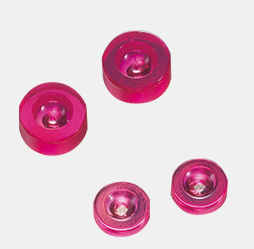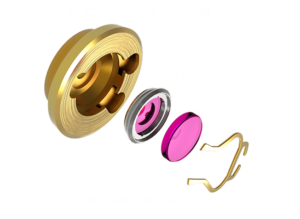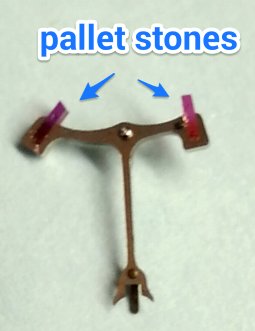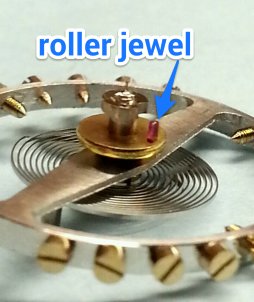Watch Jewels
The Purpose of Jewels in Watches
Synthetic rubies (sometimes synthetic sapphires) are used as bearings at the heaviest points of wear in a watch movement in order to reduce friction between moving parts and increase a movement’s lifespan. Jewels have a naturally slicker surface than metal. Jewels are only used to increase the accuracy of the movement and are not for decoration.
Types of Watch Jewels
- Hole-jewels
- Cap-jewels
- Pallet-jewels
- Impulse/roller jewels
Hole-jewels:
A hole jewel is a type of jewel with a hole bored into it so that it can be mounted on the wheel’s axle or pivots such as a cylindrical pivot or a conical pivot. It usually has a slightly rounded top or with a flat bottom.

Cap-jewels
A cap jewel is a type of jewel without a hole bored into it which is used to minimize the balance staff’s movement. Cap jewels usually are used in conjunction with a pivot jewel and have a type of shock protection in place such as a spring at each end. This protects the watch in the event that the watch is dropped or gets hit by something while being worn.

Pallet-jewels:

Impulse (roller) jewel:

Typical Jewel Placement in Watches:
Jewels can be placed anywhere the watch components move against each other. Jewel placement can also be asymmetric for the appearance of additional jewels.
Think your watch might need repair? Learn more about our watch repair services.
